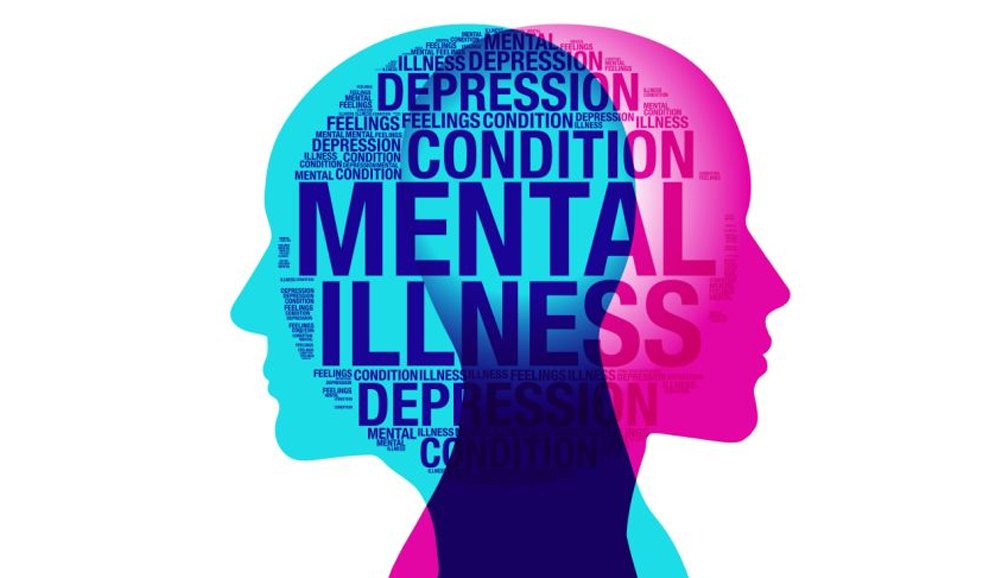Mental Health
Discover the importance of mental health. Explore anxiety, depression, stress management, and self-care tips. Your mental health journey starts here.

Mental health is a crucial aspect of overall well-being, often overlooked or misunderstood. It encompasses our emotional, psychological, and social well-being, affecting how we think, feel,
Factors Affecting Mental Health
Numerous factors can influence mental health. Some of the key factors include:
- Biological Factors: Genetic predisposition, brain chemistry, and hormonal imbalances can play a significant role in mental health conditions.
- Psychological Factors: Stress, trauma, negative thinking patterns, and low self-esteem can contribute to mental health issues.
- Social Factors: Social isolation, lack of support, discrimination, and adverse life events can negatively impact mental health.
- Environmental Factors: Exposure to violence, poverty, and pollution can increase the risk of mental health problems.
Common Mental Health Conditions
Several common mental health conditions can affect individuals of all ages. Here are a few examples:
- Anxiety Disorders: Characterized by excessive worry and fear, anxiety disorders can manifest in various forms, including generalized anxiety disorder, panic disorder, and social anxiety
disorder. - Mood Disorders: These disorders involve disturbances in mood, such as depression and bipolar disorder.
- Psychotic Disorders: Conditions like schizophrenia involve distorted thinking, perception, and behavior.
- Personality Disorders: These disorders involve enduring patterns of behavior and inner experience that deviate from cultural norms and cause distress or impairment.
- Eating Disorders: Conditions like anorexia nervosa and bulimia nervosa involve unhealthy eating patterns and body image concerns.
- Substance Abuse Disorders: These disorders involve the misuse of substances like alcohol and drugs.
Overcoming Mental Health Challenges
While mental health challenges can be daunting, effective strategies can help individuals manage and overcome them. Here are some approaches:
-
Seek Professional Help:
- Therapy: Psychotherapy, including cognitive-behavioral therapy (CBT) and psychodynamic therapy, can help individuals identify and address negative thought patterns and
behaviors. - Medication: In some cases, medication can be helpful in managing symptoms of mental health conditions.
- Psychiatrist: A psychiatrist is a medical doctor who specializes in diagnosing and treating mental
illnesses.
- Therapy: Psychotherapy, including cognitive-behavioral therapy (CBT) and psychodynamic therapy, can help individuals identify and address negative thought patterns and
-
Practice Self-Care:
- Prioritize Sleep: Aim for 7-9 hours of quality sleep each night.
- Manage Stress: Incorporate stress-reduction techniques like meditation, yoga, or
deep breathing exercises. - Eat a Healthy Diet: A balanced diet can positively impact mood and energy levels.
- Engage in Regular Physical Activity: Exercise releases endorphins, which can improve mood and reduce stress.
Build Strong Relationships:
-
- Connect with Loved Ones: Spend time with family and friends who provide support and understanding.
- Join Support Groups: Connecting with others who share similar experiences can be incredibly helpful.
-
Challenge Negative Thoughts:
- Cognitive Restructuring: Identify and challenge negative thought patterns.
- Positive Affirmations: Practice positive self-talk to boost self-esteem.
-
Seek Support from Your Workplace:
- Open Communication: Talk to your employer or HR department about your mental health concerns.
- Flexible Work Arrangements: Consider options like flexible hours or remote work to manage stress.
-
Reduce Stigma:
- Educate Others: Share information about mental health to reduce stigma and promote understanding.
- Advocate for Mental Health Awareness: Support initiatives that raise awareness and promote mental health.
Remember, seeking help is a sign of strength, not weakness. By taking proactive steps to address mental health concerns, individuals can improve their overall well-being and lead fulfilling lives.
Additional Resources:
- National Alliance on Mental Illness (NAMI):
https://www.nami.org/ - MentalHealth.gov:
https://youth.gov/federal-links/mentalhealthgov - Crisis Text Line: Text HOME to 741741
- 988 Suicide & Crisis Lifeline: Call or text 988
Disclaimer: This blog post is intended for informational purposes only and should not be considered as medical advice. If you are experiencing
EFFECTIVE OF FITNESS
Fitness plays a vital role in enhancing physical, mental, and emotional well-being. Regular physical activity has numerous benefits, both short-term and long-term, contributing to overall quality of life. Below are key aspects of the effectiveness of fitness:1....
How to save our Earth
Feature One Lorem ipsum dolor sit amet, consectetur adip iscing elit, sed do eiusmod tempor incididunt. Call to Action Feature Two Lorem ipsum dolor sit amet, consectetur adip iscing elit, sed do eiusmod tempor incididunt. Call to Action Feature Three Lorem ipsum...
Results of Global warming
Add Your Heading Text Here Feature One Lorem ipsum dolor sit amet, consectetur adipiscing elit. Ut elit tellus, luctus nec ullamcorper mattis. Feature Two Lorem ipsum dolor sit amet, consectetur adipiscing elit. Ut elit tellus, luctus nec ullamcorper...
Global Warming
Add Your Heading Text Here Lorem ipsum dolor sit amet, consectetur adipiscing elit. Ut elit tellus, luctus nec ullamcorper mattis, pulvinar dapibus leo....
